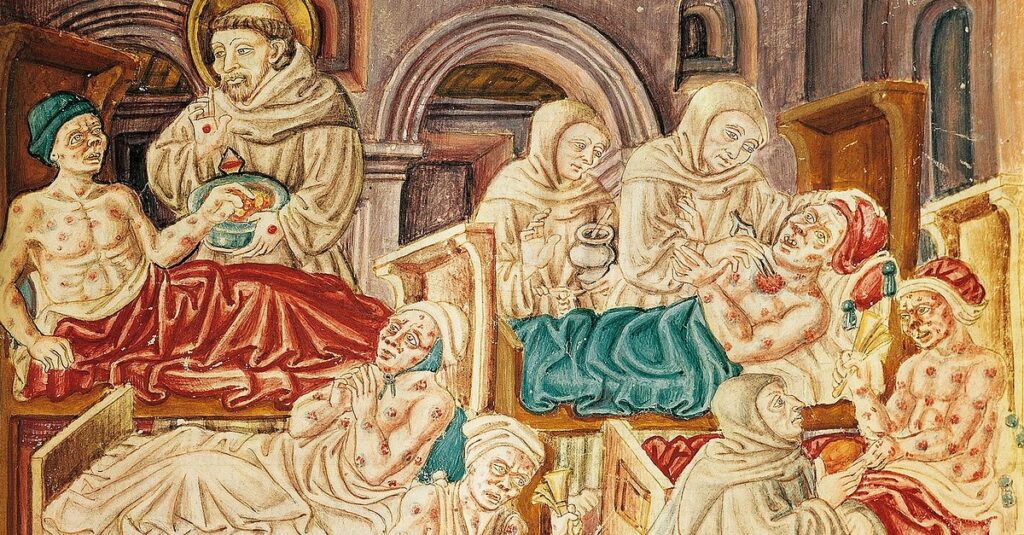
*All Scripture quotations, unless otherwise indicated, are taken from the Holy Bible, New International Version®
Chapter 2:26-29
Rev 2:26 To the one who is victorious and does my will to the end, I will give authority over the nations—
Rev 2:27 that one ‘will rule them with an iron scepter and will dash them to pieces like pottery’—just as I have received authority from my Father.
Rev 2:28 I will also give that one the morning star.
Rev 2:29 Whoever has ears, let them hear what the Spirit says to the churches.
Rev 2:26
To the one who is victorious and does my will to the end:
Consider these Greek and Hebrew terms:
- Persistency: Greek, proskarteresis (pros-kar-ter’-ay-sis), continued effort to do or achieve something despite difficulties, failure, or opposition; steadfastness.
- Obey: Greek, hupakoe (hoop-ak-o-ay’), attentive submission, compliance. Hebrew, shama` (shaw-mah’) to hear intelligently with the implication of attention and compliant response.
- Overcome: Greek, nikao (nik-ah’-o), to subdue, prevail, get the victory. Hebrew, yakol (yaw-kole’), to be able, can, could, may, might.
All Christians struggle with sinful natures, mistakes, and bad decisions. But God is not so much concerned with what we’ve done as He is with what we will become through Christ.
Rom 12:21 Do not be overcome by evil, but overcome evil with good.
1 John 5:4 …for everyone born of God overcomes the world. This is the victory that has overcome the world, even our faith.
Rom 8:1 Therefore, there is now no condemnation for those who are in Christ Jesus.
Rev 2:26
I will give Authority over nations:
Jesus never held a government post, yet, Isaiah wrote:
“Here is my servant, whom I uphold, my chosen one in whom I delight; I will put my Spirit on him, and he will bring justice to the nations.He will not shout or cry out, or raise his voice in the streets. A bruised reed he will not break, and a smoldering wick he will not snuff out. In faithfulness he will bring forth justice; he will not falter or be discouraged till he establishes justice on earth. In his teaching the islands will put their hope.” This is what God the LORD says— the Creator of the heavens, who stretches them out, who spreads out the earth with all that springs from it, who gives breath to its people, and life to those who walk on it: “I, the LORD, have called you in righteousness; I will take hold of your hand. I will keep you and will make you to be a covenant for the people and a light for the Gentiles, to open eyes that are blind, to free captives from prison and to release from the dungeon those who sit in darkness. (Isa 42:1-7)
Jesus taught obedience to God, love of others, honesty, truthfulness, and fair judgment. By living out these principles, Christians can exercise spiritual authority over lies and injustice in their homes, communities, and nations. They heal broken lives through love, free others from the dark prisons of lies and deceit, and bring justice to those who are bullied and falsely accused.
God is not so much interested in politics as He is in relationships. Faithful believers have, from time to time, held powerful political office. But the most potent authority they wield is their bold response to the Spirit of Truth!
Rev 2:27
That one (the one who is victorious, vs. 26) will rule them with an iron scepter and will dash them to pieces like pottery:
“That one” refers back to verse 26, “the one who is victorious.” The eternal principle being expressed here is that not only is Jesus victorious, but all who put their faith in him are overcomers and, with him, dash to pieces the plans of the evil one!

Merriam-Webster describes a scepter as a staff or baton borne by a sovereign as an emblem of authority. The promise of a coming Messiah (Hebrew, Messias, from the root, Mashiach, Anointed One; Greek, Christ) who will bring peace and righteousness to the world and shatter the power of godless nations echoes throughout the Old Testament:
Psa 2:6-9 “I have installed my king on Zion, my holy mountain.” 7 I will proclaim the LORD’s decree: He said to me, “You are my son; today I have become your father. 8 Ask me, and I will make the nations your inheritance, the ends of the earth your possession. 9 You will break them with a rod of iron; you will dash them to pieces like pottery.”
Isa 42:1 “Here is my servant, whom I uphold, my chosen one in whom I delight; I will put my Spirit on him, and he will bring justice to the nations. 2 He will not shout or cry out, or raise his voice in the streets. 3 A bruised reed he will not break, and a smoldering wick he will not snuff out. In faithfulness he will bring forth justice; 4 he will not falter or be discouraged till he establishes justice on earth. In his teaching the islands will put their hope.”
Isa 42:5 This is what God the LORD says— the Creator of the heavens, who stretches them out, who spreads out the earth with all that springs from it, who gives breath to its people, and life to those who walk on it: 6 “I, the LORD, have called you in righteousness; I will take hold of your hand. I will keep you and will make you to be a covenant for the people and a light for the Gentiles, 7 to open eyes that are blind, to free captives from prison and to release from the dungeon those who sit in darkness.
Isa 11:1 A shoot will come up from the stump of Jesse; from his roots a Branch will bear fruit. 2 The Spirit of the LORD will rest on him— the Spirit of wisdom and of understanding, the Spirit of counsel and of might, the Spirit of the knowledge and fear of the LORD—3 and he will delight in the fear of the LORD. He will not judge by what he sees with his eyes, or decide by what he hears with his ears; 4 but with righteousness he will judge the needy, with justice he will give decisions for the poor of the earth. He will strike the earth with the rod of his mouth; with the breath of his lips he will slay the wicked.
Tracy R. Rich writes:
Belief in the eventual coming of the mashiach is a basic and fundamental part of traditional Judaism. It is part of Rambam‘s 13 Principles of Faith, the minimum requirements of Jewish belief. In the weekday Shemoneh Esrei prayer, recited three times daily, we pray for all of the elements of the coming of the mashiach: ingathering of the exiles; restoration of the religious courts of justice; an end of wickedness, sin and heresy; reward to the righteous; rebuilding of Jerusalem; restoration of the line of King David; and restoration of Temple service1.
Christians believe that Jesus is the Mashiach, the deliverer who, by his sacrificial death and miraculous resurrection, shattered the chains of darkness and fear; by his teachings and personal example, broke to pieces the injustices, lies, and deceptions, with which evil nations hold captive the children of God.
Jesus taught that we should return kindness in the face of persecution, generosity in the face of loss, and selfless service in times of great need (Matt 5:42-44, 2 Cor 1:3-4). Because of Jesus’ teachings, Christians often respond to adversity in remarkable ways. When severe famine hit the Roman Empire during the reign of Maximinus (235-238 AD), the historian Eusebius had this to say:
Then did the evidences of the universal zeal and piety of the Christians become manifest to all the heathen. For they alone in the midst of such ills showed their sympathy and humanity by their deeds. Every day some continued caring for and burying the dead, for there were multitudes who had no one to care for them; others collected in one place those who were afflicted by the famine, throughout the entire city, and gave bread to them all; so that the thing became reported abroad among all men, and they glorified the God of the Christians; and, convinced by the facts themselves, confessed that they alone were truly pious and religious.(History of the Church, Book 9, Chapter 8:13-14)
From 249-262 AD, during the bishopric of Cyprian of Carthage, a great plague ravaged the ancient world. In a letter titled “On The Plague,” Cyprian describes symptoms that may have been smallpox, measles, or a viral hemorrhagic fever (filoviruses) like the Ebola virus:
This trial, that now the bowels, relaxed into a constant flux, discharge the bodily strength; that a fire originated in the marrow ferments into wounds of the fauces; that the intestines are shaken with a continual vomiting; that the eyes are on fire with the injected blood; that in some cases the feet or some parts of the limbs are taken off by the contagion of diseased putrefaction; that from the weakness arising by the maiming and loss of the body, either the gait is enfeebled, or the hearing is obstructed, or the sight darkened…
Eusebius records a letter written by Dionysius, Bishop of Alexandria, describing how the pagan populous responded to the plague in selfish panic:
At the first onset of the disease, they pushed the sufferers away and fled from their dearest, throwing them into the roads before they were dead and treating unburied corpses as dirt, hoping thereby to avert the spread and contagion of the fatal disease; but do what they might, they found it difficult to escape…Eusebius, History of the Church, Book 7.22.7-10
He then observed a very different response by Christians:

Most of our brethren showed love and loyalty in not sparing themselves while helping one another, tending to the sick with no thought of danger and gladly departing this life with them after becoming infected with their disease. Many who nursed others to health died themselves.
The best of our own brothers lost their lives in this way – some presbyters, deacons, and laymen – a form of death based on strong faith and piety that seems in every way to equal martyrdom. They would also take up the bodies of the saints, close their eyes, shut their mouths, and carry them on their shoulders. They would embrace them, wash and dress them in burial cloths, and soon receive the same services themselves.
During another crisis that struck the Empire, Emperor Julian (the “Apostate” – AD 331-363), who had rejected Christianity, wrote a letter to the pagan high-priest Arsacius, lamenting:
It is disgraceful that, when no Jew ever has to beg, and the impious Galileans [Christians] support not only their own poor but ours as well, all men see that our people lack aid from us. (To Arsacius, 69-70; cf. Fragment of a Letter to a Priest, 336-37)
As the Christian faith has spread to encompass the whole world and believers continue to respond in love and charity, countless similar testimonies have been recorded.
Followers of Christ believe there will come a time when Jesus returns, evil is completely defeated, and all the world’s nations acknowledge his lordship. No one knows when this will happen or what it will look like exactly. However, what all Christians can know for sure—what has been witnessed time and again—is that our steadfast Christian testimony can claim victory and break into pieces the evil and deceitful things of this world right now!
Rev 2:28
I will also give him the morning star:

Traditionally, the terms “morning star,” or, “day star,” refer to Venus, the brightest planet seen with the naked eye. It’s the third brightest natural object in the sky after the Moon and the Sun. Venus represented the goddess Aphrodite to the Greeks, and the goddess Freyja to the Norse. Both were goddesses of love, beauty, and fertility.
In Old Testament symbolism, “Morning Star” is often associated with Lucifer, the fallen angel. Compare the following translations of Isa 14:12 (emphasis mine):
(ESV) – “How you are fallen from heaven, O Day Star, son of Dawn! How you are cut down to the ground, you who laid the nations low!
(NET2) – “Look how you have fallen from the sky, O shining one, son of the dawn! You have been cut down to the ground, O conqueror of the nations!
(NIV2) – “How you have fallen from heaven, morning star, son of the dawn! You have been cast down to the earth, you who once laid low the nations!”
(KJ) – How art thou fallen from heaven, O Lucifer, son of the morning! how art thou cut down to the ground, which didst weaken the nations!
Lucifer is Latin for “light-bringer” and corresponds to the Hebrew name, heylel, meaning “something or someone of radiant splendor” (Strong’s H1966). The name Lucifer was absorbed into Christianity as a name for the devil.
However, in John’s Revelation, “Morning Star” refers to Christ and his illuminating Spirit:
Rev 22:16 “I, Jesus, have sent my angel to give you this testimony for the churches. I am the Root and the Offspring of David, and the bright Morning Star.”
2Pet 1:19 We also have the prophetic message as something completely reliable, and you will do well to pay attention to it, as to a light shining in a dark place, until the day dawns and the morning star rises in your hearts.
The term morning star, as used in these verses, has nothing to do with Satan and everything to do with the brightness, radiance, and light that come from a relationship with God and His Christ!
Footnotes
- Tracy R. Rich, Mashiach: The Messiah, Judaism 101, https://www.jewfaq.org/mashiach, retrieved Dec. 24, 2023. ↩︎
*All Scripture quotations, unless otherwise indicated, are taken from the Holy Bible, New International Version®, NIV®. Copyright ©1973, 1978, 1984, 2011 by Biblica, Inc.™ Used by permission of Zondervan. All rights reserved worldwide. www.zondervan.comThe “NIV” and “New International Version” are trademarks registered in the United States Patent and Trademark Office by Biblica, Inc.™





